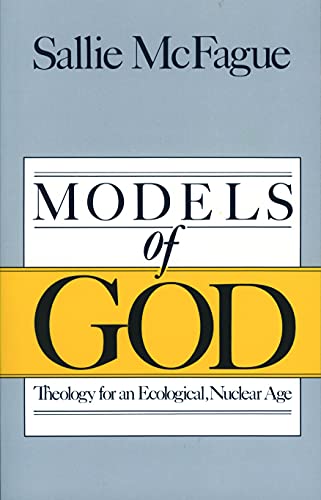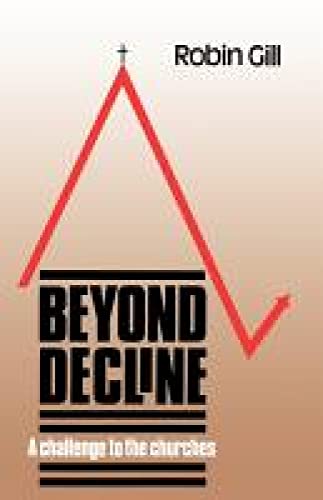Continental Philosophy and Modern Theology
Written by David Brown Reviewed By Gerald BrayThis book is a comprehensive study of Systematic Theology as it has interacted with developments in French and German philosophy since the time of Kant. There are, however, numerous references to earlier theologians and philosophers, and in some sections of the book (e.g. the treatment of atonement) they play a more prominent part in the narrative than the moderns do.
The book is distinguished first of all by its somewhat unusual method. Unlike most studies of this kind, it is not historical or biographical in nature, but analytical. The chapter headings are those of a textbook on Systematic Theology, and each section deals with the contribution of a particular group of philosophers and theologians to our understanding of that particular theme. In some cases, as for example in the discussion of hermeneutics, it is fairly clear that particular schools of thought have contributed to discussion in one major area and not in others, so this type of treatment is quite legitimate. Unfortunately though, it is not always clear why a philosopher or theologian should appear under the rubric chosen for him by the author. Does Jüngel, for example, fit naturally into a chapter dealing with the Last Things?
It must be admitted that the method adopted occasionally produces a certain arbitrariness in the choice of both authors and subjects, and at times one would have been grateful for a more biographical approach. After all, Barth and Bultmann (to name but two of the best known) made contributions in more than one area! By adopting the approach he has, the author gives the impression that the leading intellectual figures he discusses confined themselves to a single aspect of systematic theological thought, which is obviously a serious distortion! Another problem is that it is not always easy to find philosophers who have dealt competently with the same questions, and it is hard to escape the feeling that some of the choices, at least, are artificial.
One of the great strengths of the book is the author’s vast range of reading. He is familiar with virtually every work of significance in the field in English, French and German, and he is not afraid to discuss people like Josef Maréchal or Theodor Adorno at unaccustomed length, pointing out just how significant their contributions have been to intellectual endeavour in the 20th century. There can be few readers of this book who will not learn something about figures like these of which they were previously unaware, and we must be grateful to Dr Brown for having introduced them to an English-speaking audience.
We must also be grateful to him for having demonstrated that continental philosophy is much richer than many of us think, and for having shown that in France and Germany there is an interaction between philosophy and theology which seems quite strange in a British (or American) context. Most of his philosophers were (or are) atheists, or at least non-religious in their approach, and not a few were secularized Jews, which makes both their interest in and their influence on religion that much more striking. Committed Christians may dispute whether this is really healthy for theology in the life of the church, but it is important to understand the breadth and nature of the interaction which has taken place and done so much to shape theological thought in recent times.
Having said that, it is not unfair to add that the author is frequently better at explaining the thought of a particular philosopher or theologian, without really going into the exact nature of his dependence on the other discipline. Quite what Jacques Lacan has to say about the Church or Ernst Bloch about Eschatology remains something of a mystery, and it is not altogether clear that the theologians discussed under these same headings borrowed anything of significance from them.
It is also noticeable that certain subjects, in particular the doctrine of Human Nature and the doctrine of Salvation, rely much more than the others on classical thought, with special attention being given to people like Irenaeus, Anselm and Calvin.
In relation to the Christian theological tradition, the author is a fairly conservative Anglo-Catholic, who defends Anselm’s theory of atonement and finds some good things to say about transubstantiation. At the same time, he is clearly opposed to the Reformers, and quite dismissive of ‘fundamentalism’, although he does at least mention it! He tries to combine a fairly orthodox theology with a frank acceptance of radical biblical criticism, which is not easy and may in the long run be untenable. Much of his argument seems to rely on the premiss that traditional theology was discussing real issues in what is now an outmoded way of thinking, so that it is possible to reject the latter without turning one’s back on the former.
The author is sympathetic to Liberation Theology and to Feminist Theology, without following either of them all the way. On the other hand, he is more dismissive of Personalism (which he never mentions by name) and leaves out some thinkers of considerable importance, like Martin Buber, for example. By restricting himself to France and Germany (although Edward Schillebeeckx, Gustav Aulén and Søren Kierkegaard manage to find their way into the discussion) he misses out on the important contributions made by other thinkers like Benedetto Croce, Miguel de Unamuno and Herman Dooyeweerd, none of whom is mentioned in the book.
British thinkers are not supposed to be covered, though inevitably they play a fairly prominent role in some sections. Dr Brown is not afraid to criticize even the most eminent among them, though it is interesting to note that he gives T. F. Torrance a recognition which is sadly too rare in this country. Perhaps it is only in the context of continental philosophy that his contribution to theological thought can be properly assessed and appreciated. At any rate Torrance stands alongside the greats in a way that no other living British or American theologian does, and his originality is given the fullest honour here.
This book will be a valuable reference tool for students who need to know something about the matters of which it treats, though the author’s bias must constantly be borne in mind. It must also be said that neither the subject matter nor the author’s style makes it easy for the non-specialist to follow his arguments in every area. Again, one cannot help thinking that a more historical-biographical approach would have been useful here, especially for the uninitiated. The price is also forbidding, which is a pity, since books of this kind are so few.
Gerald Bray
Gerald Bray is research professor of divinity at Beeson Divinity School in Birmingham, Alabama, where he teaches history and doctrine. He is a minister in the Church of England and the editor of the Anglican theological journal Churchman.







